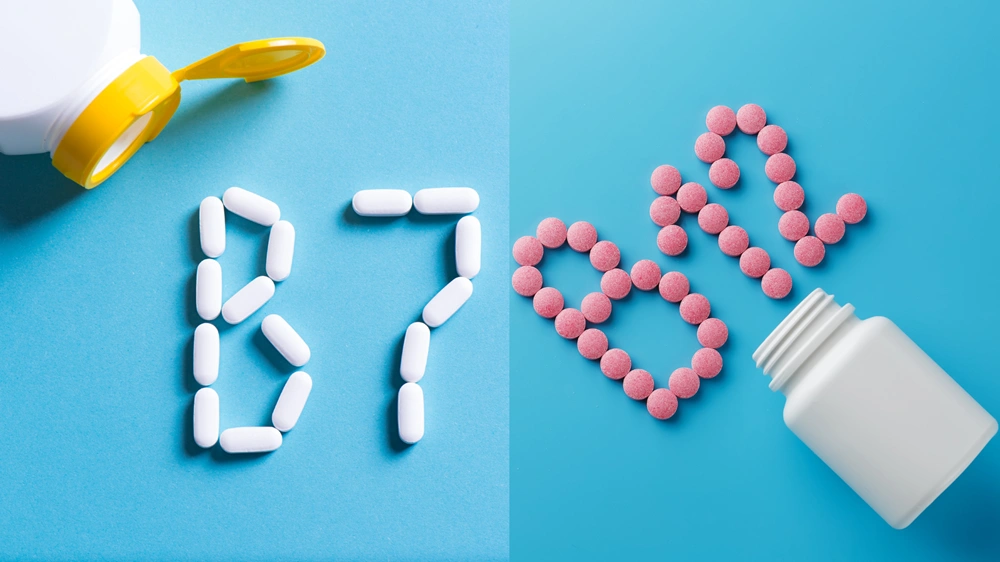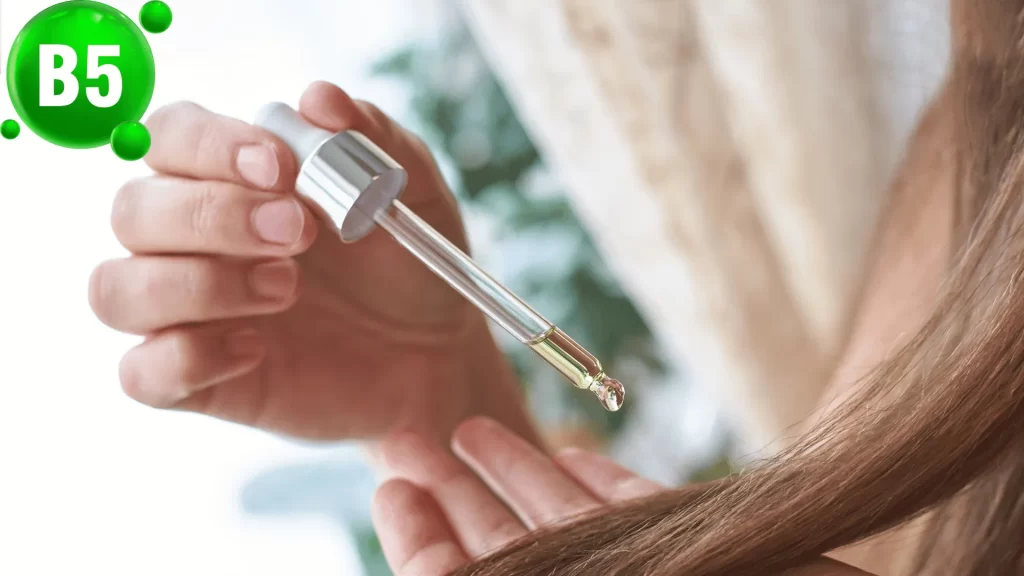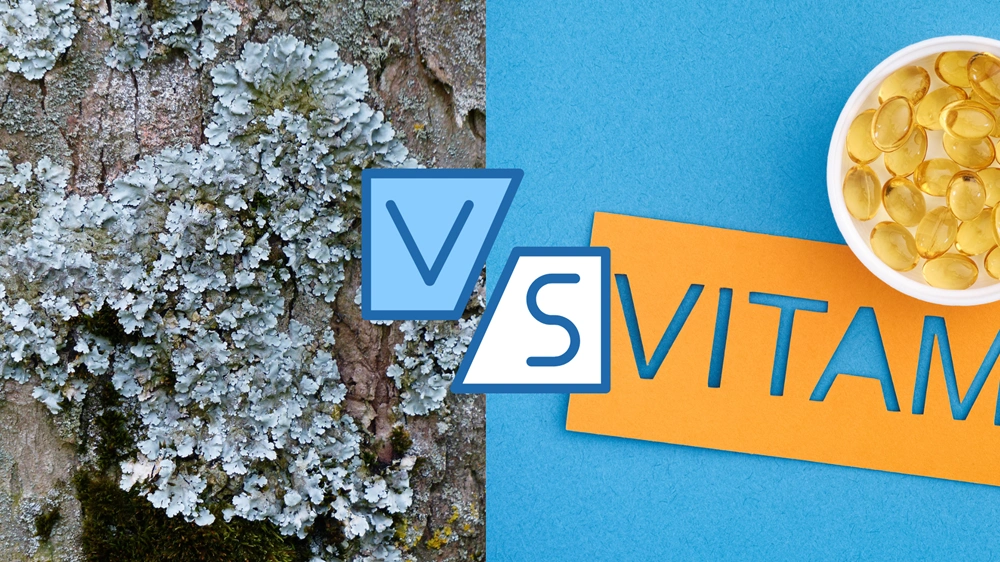Hey, you! Ever found yourself staring at your skincare stash, wondering if Vitamin E or retinol deserves the top spot? I’ve been there—juggling bottles, googling like crazy, and just wishing my skin would tell me what it wants. These two are like the rockstars of the beauty world, each with their own fan club. But what’s the real difference in the Vitamin E vs retinol showdown? And which one’s going to give you that oh-wow glow? Let’s break it down with some heart, a little science, and a whole lot of real talk. Grab a cozy drink, and let’s figure this out together!
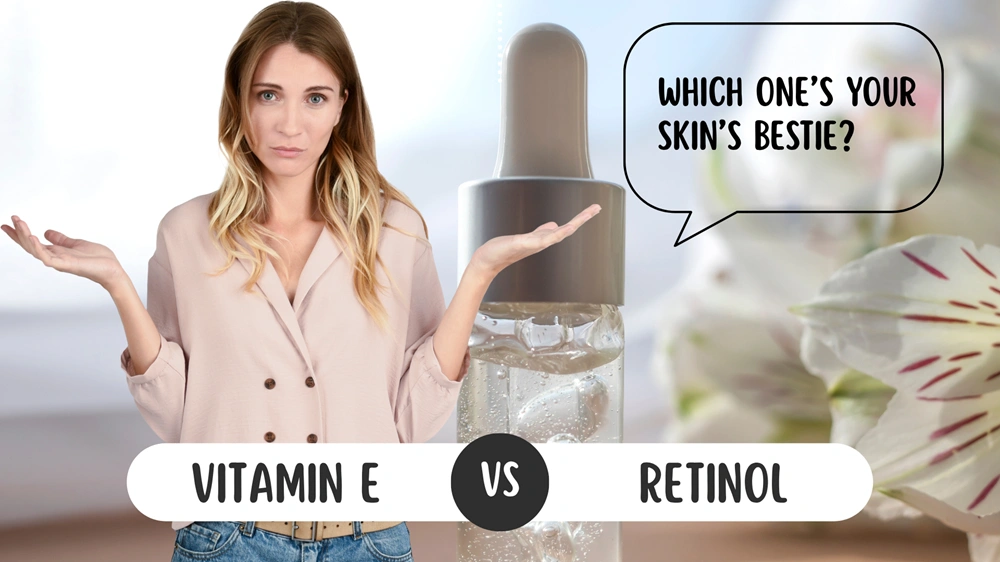
What’s Vitamin E All About?
Picture Vitamin E as that friend who’s always there with a warm hug when life gets rough. It’s a fat-soluble antioxidant that swoops in to protect your skin from the chaos of daily life—think UV rays, smog, or just the stress of forgetting sunscreen (oops, guilty!). I love how it feels like a soft shield, keeping my skin hydrated and calm. You’ll find it in all sorts of goodies, from Vitamin E oil to capsules, and even in dietary supplement ingredients for that extra boost. It’s like nature’s way of saying, “I’ve got you, babe.”
Want to sneak more into your routine? Snack on Vitamin E foods like almonds or spinach, or pop a Vitamin E tablet when you’re feeling fancy. For me, slathering on some Vitamin E oil at night is pure bliss—it’s like a mini spa moment that leaves my skin so happy in the morning.
Retinol: The Skincare Game-Changer
Now, let’s switch gears to retinol—the bold, take-charge pal who’s all about transformation. It’s a type of Vitamin A that tells your skin, “Hey, let’s speed things up!” It’s famous for tackling wrinkles, acne, and those pesky dark spots. If Vitamin E’s the comforter, retinol’s the coach pushing you to glow harder. I’ll be real—my first go with retinol was a mess. Peeling? Check. Redness? Yup. But once I got the hang of it, my skin was like, “Whoa, where have you been all my life?”
You won’t find retinol in your salad, but it’s a star in creams, serums, and even powder supplement manufacturing for beauty blends. It’s not as chill as Vitamin E, but that’s the point—it’s here to shake things up and deliver results.
Vitamin E benefit
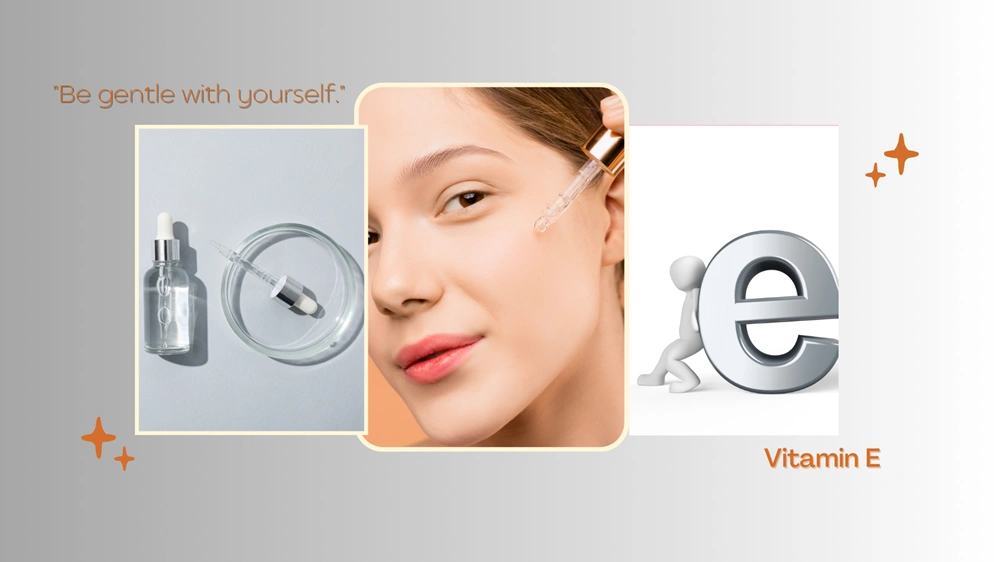
1. Antioxidant Protection
Picture your skin as a vibrant garden, blooming under the sun but constantly battered by invisible pests—those sneaky free radicals from UV rays and city smog. Oh, how I hate seeing my skin lose its glow to these culprits! Vitamin E swoops in like a fearless gardener, fighting off those harmful molecules that try to steal your youth. It neutralizes oxidative stress, keeping wrinkles and dullness at bay. Honestly, it’s like giving your skin a daily shield, so you can step out feeling radiant and unstoppable.
2. Moisturizing Properties
Ever felt your skin so dry it’s like a cracked, thirsty desert? I’ve been there, and it’s no fun. Vitamin E is like a gentle, nourishing rain that quenches your skin’s thirst. It strengthens the skin’s natural moisture barrier, locking in hydration so your face feels as soft as a baby’s cheek. I love how it transforms my skin from rough to silky, making every touch feel like a little luxury. Trust me, your skin will drink it up and thank you with a healthy glow.
3. Wound Healing Support
Life’s little mishaps—a scrape from a clumsy fall or a stubborn acne scar—can leave your skin feeling like it’s carrying battle wounds. Vitamin E is like that caring friend who always knows how to patch you up. It boosts cell regeneration, helping cuts, burns, or scars heal faster. I’ve seen it work wonders on those pesky marks, making them fade like distant memories. It’s not just healing; it’s giving your skin a fresh start, and that feels like pure magic.
4. Reduces Inflammation
If your skin’s anything like mine, it can throw a tantrum at the slightest irritation—redness, puffiness, you name it. Vitamin E is like a soothing lullaby, calming your skin when it’s feeling cranky. It reduces inflammation, making it a godsend for sensitive or acne-prone skin. I can’t tell you how much I adore its gentle touch, turning my red, angry patches into calm, happy skin. It’s like a warm hug for your face, bringing peace when you need it most.
5. UV Damage Defense
The sun might be your skin’s frenemy—giving you that golden glow but sneaking in damage like dark spots or fine lines. Vitamin E steps up like a loyal protector, not replacing sunscreen but adding an extra layer of defense against UV harm. It helps reduce the appearance of sunspots, keeping your skin looking even and bright. I love knowing my skin has this backup, like a trusty umbrella on a stormy day, keeping it safe and glowing.
6. Fades Scars and Hyperpigmentation
Scars and dark spots can feel like little souvenirs from life’s rough moments—acne battles or sun-soaked summers. Vitamin E is like a gentle artist, softly blending those marks into the background. It promotes an even skin tone, gradually fading hyperpigmentation and scars. I’ve watched it work its magic on my own stubborn spots, and it’s like watching a canvas become clear again. It’s not just about looks; it’s about feeling like your skin tells a story of healing and hope.
Retinol benefit
1. Unclogs Pores and Reduces Acne
Ugh, clogged pores and breakouts can make your skin feel like it’s throwing a tantrum! Retinol steps in like a calm, wise coach, regulating oil production and clearing out those pesky pores. It’s helped me say goodbye to blackheads and those surprise zits that pop up at the worst times. I love how it keeps my skin clear and happy—it’s like giving your face a fresh start every day.
2. Enhances Skin Radiance
Want that lit-from-within glow that makes everyone ask, “What’s your secret?” Retinol’s your answer! It’s like flipping on a light switch for your skin, speeding up cell turnover to reveal brighter, fresher layers. I can’t get over how my skin looks so alive and radiant, like I just got back from a beach vacation (minus the sunburn!). It’s not just about looks—it’s about feeling like you’re glowing from the inside out.
3. Improves Skin Elasticity
As time marches on, skin can start to feel like a balloon losing its bounce. Retinol is like a burst of helium, pumping up collagen and elastin to keep your skin firm and springy. I’ve noticed my skin feels tighter, like it’s ready to take on the world. It’s such a confidence boost, knowing your skin’s got that youthful resilience. With Retinol, your face stays as vibrant as your spirit.
4. Minimizes Appearance of Scars
Acne scars can feel like little reminders of battles you’d rather forget. Retinol’s like a gentle healer, speeding up skin renewal to soften those marks over time. I’ve watched my own scars fade, and it’s like my skin’s telling me it’s ready to move on. It’s not just about smoother skin—it’s about feeling free from the past, with a face that’s ready to face the future.
5. Prevents Premature Aging
Life’s harsh elements—sun, pollution, stress—can make your skin age faster than you’d like. Retinol’s like a trusty shield, promoting healthy cell turnover and collagen production to keep premature aging at bay. I love knowing my skin’s got this extra layer of protection, like a cozy blanket against life’s storms. It’s not just about staying youthful—it’s about giving your skin the strength to glow through every chapter of life.
Vitamin E vs Retinol: The Face-Off
Alright, let’s put Vitamin E vs retinol head-to-head. They’re both awesome, but they’ve got different vibes. Here’s a quick table to break it down:
| Feature | Vitamin E | Retinol |
|---|---|---|
| Superpower | Soothes, hydrates, protects | Renews, smooths, firms |
| Best For | Dryness, scars, sensitive skin | Wrinkles, acne, texture |
| How to Use | Oils, foods, supplements | Serums, creams, supplements |
| Gentle Factor | Super chill, daily use | Start slow, can irritate |
| Sun Vibes | No worries | Sunscreen required! |
So, Vitamin E vs retinol—who wins? Depends on your skin’s mood! Vitamin E’s your go-to for calm and comfort; retinol’s the boss for big changes. Honestly, I say why pick? They’re like peanut butter and jelly—great alone, but magic together.
Vitamin E vs Retinol: Key Differences for Your Skin’s Journey
1. Primary Function
Picture Vitamin E as a cozy blanket, wrapping your skin in protection and hydration, while Retinol is like a determined coach, pushing your skin to renew and rebuild itself. I love how Vitamin E shields my skin from the harsh world—like a superhero fighting off free radicals—while keeping it soft and plump. Retinol, though, is all about action, speeding up cell turnover and boosting collagen to tackle deeper concerns. It’s like choosing between a warm hug and a rigorous workout—both amazing, but they serve your skin in such different ways.
2. Skin Concerns Addressed
When my skin’s throwing a tantrum—red, irritated, or scratched—Vitamin E steps in like a soothing friend, calming inflammation and helping little wounds heal faster. It’s my go-to when my skin needs TLC. Retinol, on the other hand, is like a master artist, tackling fine lines, acne, and stubborn dark spots with precision. I’ve seen it smooth out my skin’s texture like magic, but it’s less about comfort and more about transformation. It’s all about picking the right tool for your skin’s unique story.
3. Sensitivity and Side Effects
Oh, how I adore Vitamin E’s gentle touch! It’s like a soft whisper to my sensitive skin, rarely causing a fuss and always leaving it happy and hydrated. Retinol, though? It’s like a bold new friend who means well but can be a bit intense at first. It might cause dryness or peeling, especially if you’re new to it, so you have to ease it in slowly. I learned that the hard way! Vitamin E is your safe haven, while Retinol asks for patience as your-skin adjusts to its power.
4. Time of Use
Vitamin E is like that reliable friend who’s there for you any time—day or night, no questions asked. I slather it on whenever my skin needs a moisture boost or protection from the sun’s rays. Retinol, though, is more like a night owl, working its magic best after sunset because sunlight can make it less effective and increase sensitivity. I love how I can count on Vitamin E anytime, but Retinol’s nighttime routine feels like a special ritual for my skin’s glow-up.
5. Speed of Results
When my skin’s feeling parched, Vitamin E is like a tall glass of water, delivering instant hydration and a protective glow that I can feel right away. It’s such a comfort! Retinol, though, is more like planting a seed—you water it with patience, and after weeks or even months, you see the rewards: smoother wrinkles, clearer skin. I’ve learned to love Retinol’s slow-and-steady wins, but Vitamin E’s quick fix is my lifesaver on rough days.
Vitamin E vs Retinol Daily Requirement: How Much Is Enough?
Vitamin E
So, how much Vitamin E do you actually need? Here’s a handy table from the National Institutes of Health (source):
| Age Group | Daily Amount (mg) |
|---|---|
| Adults | 15 mg |
| Teens (14-18) | 15 mg |
| Kids (9-13) | 11 mg |
| Little Ones (1-3) | 6 mg |
Stick around 15 mg as an adult, and you’re golden. Too little, and your skin might feel blah; too much (like over 1000 mg), and you might feel queasy. I keep it simple with a Vitamin E capsule or some oil—keeps me glowing without the fuss.
Retinol
Wondering how much retinol your skin needs to shine without going overboard? Here’s a clear guide based on dermatological recommendations (source):
| Age Group | Daily Amount (mcg RAE) |
|---|---|
| Adults (19+) | 700–900 mcg (women/men) |
| Teens (14–18) | 600–700 mcg (girls/boys) |
| Kids (9–13) | 600 mcg |
| Little Ones (1–3) | 300 mcg |
For adults, sticking to 700–900 mcg of Retinol Activity Equivalents (RAE) keeps your skin happy and healthy. Too little, and you might miss out on that glow; too much (over 3000 mcg daily), and you could face irritation or dryness—yikes! I love a gentle retinol serum at night; it’s like a little TLC for my face without the fuss.
Can You Use Both?
Here’s a thought—why not team up Vitamin E and retinol? They’re like the ultimate skincare duo. I’ve been using Vitamin E oil in the morning to hydrate and protect, then retinol at night to work its magic. It’s like giving my skin a cozy day and a productive night. The trick? Ease into retinol—start with a couple nights a week so your skin doesn’t freak out. My dry patches are gone, and my texture’s smoother than ever. Could this be your skin’s happy place too?
Final Thoughts: Your Skin, Your Rules
So, Vitamin E vs retinol—who’s your pick? Vitamin E’s the gentle nurturer, perfect for keeping things soft and safe. Retinol’s the bold fixer, ready to tackle whatever’s bugging your skin. Me? I’m all about both—why settle when you can have it all? Play around, see what your skin loves, and let me know how it goes. Here’s to glowing, friend—you’ve totally got this!
FAQs
Is retinol better than vitamin E?
It depends on your goal. Retinol is better for wrinkles and acne as it boosts cell turnover. Vitamin E excels at hydration and protection against damage. Choose based on your skin’s needs.
Can I use vitamin E and retinol together?
Yes! They’re a great pair. Vitamin E soothes and hydrates, while retinol renews. Use vitamin E in the morning and retinol at night to avoid irritation.
What should you not mix with vitamin E?
Avoid mixing vitamin E with harsh actives like AHAs or BHAs in the same routine, as they can irritate sensitive skin.
What is the work of vitamin E on the skin?
Vitamin E hydrates, protects against free radicals, reduces inflammation, and supports healing for a smoother, healthier complexion.
Does vitamin E stimulate collagen?
Indirectly, yes. Vitamin E protects skin cells, which may support collagen health, but it’s not as direct as retinol.
Which vitamin E is best for the face?
Natural vitamin E (d-alpha-tocopherol) in oils or serums is best for the face—gentle and effective for hydration.
What are the best vitamins for your face?
Vitamin C (brightening), retinol (renewal), vitamin E (protection), and niacinamide (soothing) are top picks for overall skin health.
References
- Journal of Molecular Medicine. “Vitamin E and UV Protection.” https://link.springer.com/article/10.1007/s00109-016-1487-z
- Journal of Cosmetic Dermatology. “Retinol and Collagen Production.” https://onlinelibrary.wiley.com/doi/10.1111/jocd.12193
- National Institutes of Health. “Vitamin E Fact Sheet.” https://ods.od.nih.gov/factsheets/VitaminE-HealthProfessional/

